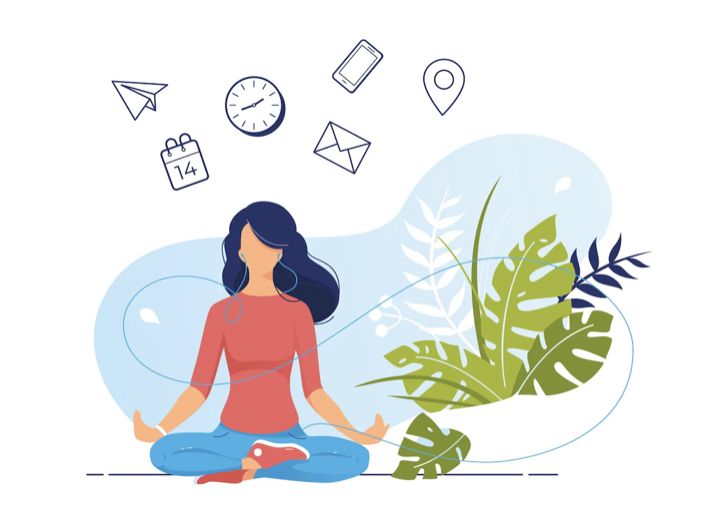How to Improve Mental Health
In today’s fast-paced world, mental health has rightfully emerged as a critical component of overall well-being. Despite its importance, mental health often takes a back seat to physical health in public discourse and personal care routines. This comprehensive guide aims to bridge that gap by providing practical insights and actionable tips for improving mental health, which can be seamlessly integrated into daily life.
Understanding Mental Health
Definition and Importance
Mental health refers to our emotional, psychological, and social well-being. It affects how we think, feel, and act, influencing every aspect of our lives—from relationships to productivity.
Common Misconceptions
Misconceptions about mental health can perpetuate stigma. Understanding that mental health issues are common and treatable is crucial for promoting acceptance and seeking help when needed. Also, read about What Muscles Does Rowing Work
Recognizing Signs of Poor Mental Health
Symptoms to Watch For
Signs of poor mental health vary but may include persistent sadness, changes in appetite, difficulty concentrating, and withdrawal from social activities.
When to Seek Help
Seek professional help if symptoms persist for more than two weeks, significantly impact daily life, or are accompanied by thoughts of self-harm or suicide.
Building a Support System
Importance of Social Connections
Strong social connections provide emotional support, reduce feelings of loneliness, and promote a sense of belonging.
How to Cultivate Supportive Relationships
Nurture relationships with family, friends, and community members through open communication, empathy, and active listening. Discover more about How to Maintain Weight

Managing Stress Effectively
Techniques for Stress Reduction
Practice mindfulness, deep breathing exercises, and engage in physical activities like yoga or running to alleviate stress.
Creating a Healthy Work-Life Balance
Set boundaries between work and personal life, prioritize tasks, and allocate time for relaxation and hobbies.
Prioritizing Sleep
Impact of Sleep on Mental Health
Quality sleep is essential for cognitive function, mood regulation, and overall mental well-being.
Tips for Improving Sleep Quality
Establish a bedtime routine, create a comfortable sleep environment, and limit screen time before bed.
Nutrition and Mental Health
Foods that Support Mental Well-being
Incorporate foods rich in omega-3 fatty acids, antioxidants, and vitamins that promote brain health.
The Gut-Brain Connection
Maintain a balanced diet to support gut health, which influences mood and mental clarity.
Regular Physical Activity
Benefits of Exercise for Mental Health
Physical activity releases endorphins, reduces stress hormones, and improves sleep quality and self-esteem.
Incorporating Physical Activity into Daily Routines
Find activities you enjoy, whether it’s walking, dancing, or team sports, and make them a regular part of your schedule.
Mindfulness and Meditation
Practices to Enhance Mindfulness
Practice mindfulness in daily activities, such as eating or walking, to cultivate present-moment awareness.
Meditation Techniques for Beginners
Start with guided meditations or simple breathing exercises to develop focus and reduce stress.
Seeking Professional Help
Types of Mental Health Professionals
Psychiatrists, psychologists, counselors, and therapists specialize in diagnosing and treating mental health conditions.
Overcoming Stigma
Normalize seeking help by recognizing that mental health professionals provide valuable support and guidance.

Engaging in Hobbies and Creative Activities
Therapeutic Benefits
Hobbies and creative pursuits offer outlets for self-expression, relaxation, and enjoyment.
Finding Joy in Leisure Time
Explore new hobbies or revisit old ones to discover activities that bring fulfillment and reduce stress.
Limiting Social Media and Digital Detox
Impact of Technology on Mental Health
Excessive use of social media can contribute to feelings of inadequacy, anxiety, and disrupted sleep patterns.
Strategies for Digital Well-being
Set boundaries for screen time, engage in offline activities, and prioritize real-life connections.
Developing Resilience
Coping Strategies for Setbacks
Learn adaptive coping mechanisms like problem-solving, positive reframing, and seeking support during challenging times.
Building Emotional Resilience
Strengthen resilience through self-care practices, maintaining perspective, and fostering a growth mindset.
Conclusion
Improving mental health is a dynamic journey that requires commitment and self-awareness. By incorporating the strategies outlined in this guide—such as building a support system, managing stress effectively, prioritizing sleep and nutrition, engaging in physical activity and mindfulness, seeking professional help when needed, pursuing hobbies, and developing resilience—individuals can cultivate a balanced and resilient approach to mental well-being. Remember, small changes can lead to significant improvements over time, enhancing overall quality of life.
FAQs
Q: How long does it take to see improvements in mental health?
A: The timeline varies based on individual circumstances, but consistent efforts in areas like stress management and self-care can lead to noticeable improvements within weeks to months.
Q: Is it normal to experience setbacks in mental health improvement?
A: Yes, setbacks are common and part of the recovery process. The key is to approach setbacks with resilience, learn from them, and seek support when needed.
Q: Can improving physical health also benefit mental health?
A: Absolutely. Physical activity, proper nutrition, and sufficient sleep play vital roles in supporting mental well-being by reducing stress and promoting overall health.
Q: How can I help a loved one who is struggling with their mental health?
A: Offer compassionate support, encourage open communication, and help them connect with mental health professionals or support groups if necessary.







